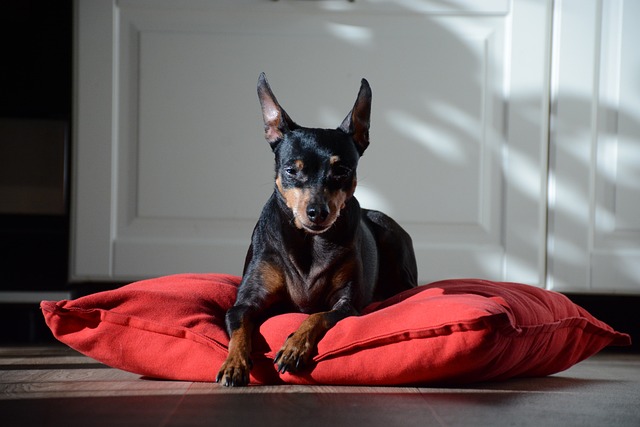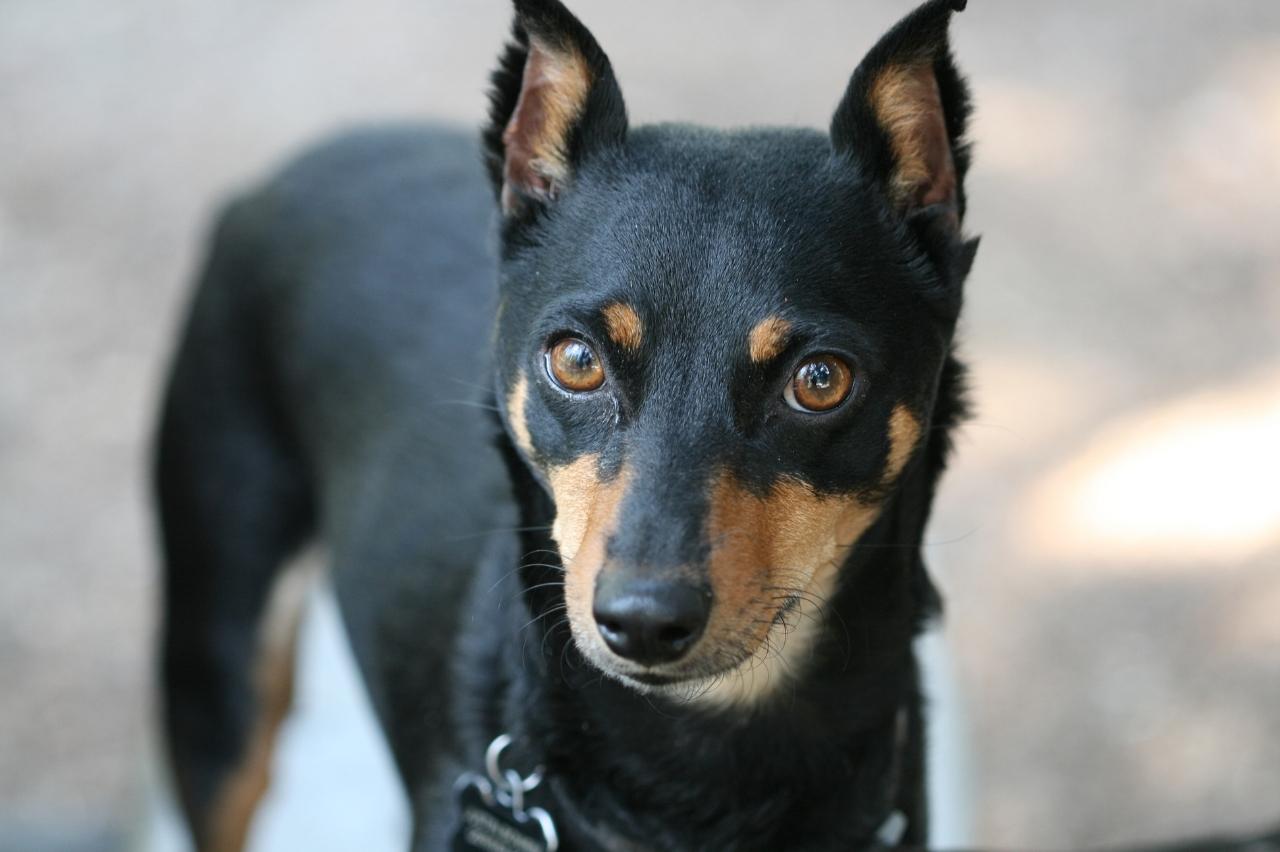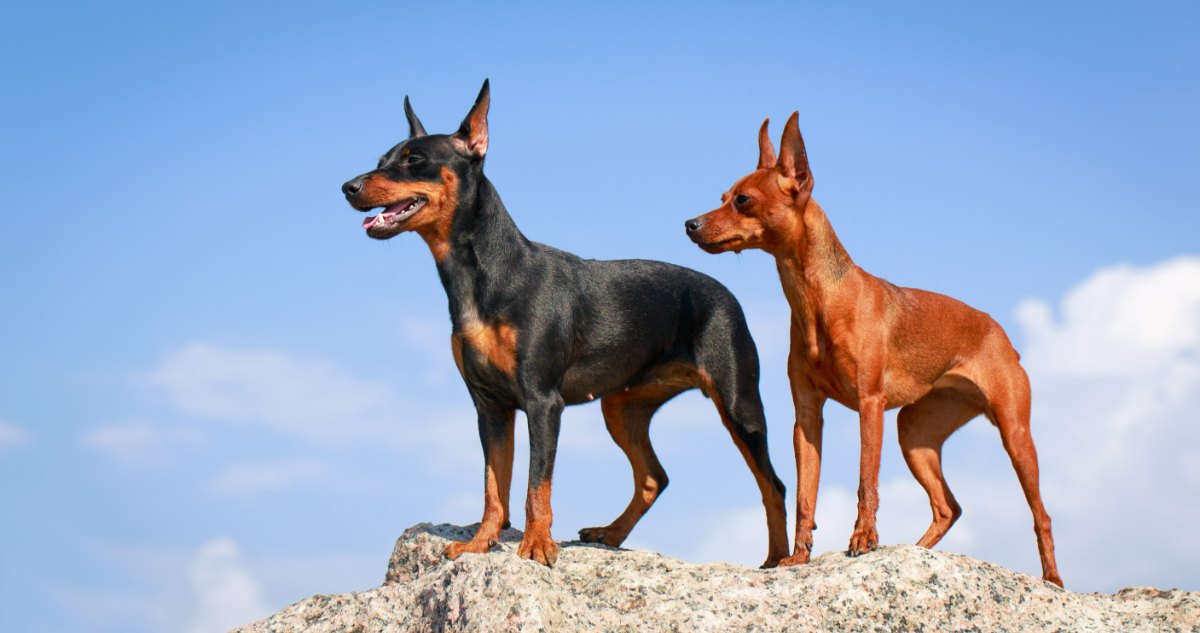Miniature Pinschers
Showing all 3 results
Shelter Dog Meal Donation Count:
Showing all 3 results
The Miniature Pinscher, often affectionately called the “Min Pin,” is a small dog with a big personality, known for its fearlessness and spirited character. They are often mistaken for miniature Dobermans, but they are a distinct and older breed.
The Miniature Pinscher is an energetic and assertive breed, often mistaken for a miniature Doberman. However, they are a distinct breed with a much longer history.

Originating from Germany, the Miniature Pinscher was primarily used for hunting vermin. Despite popular belief, they are not a downsized Doberman but rather a breed that predates the Doberman Pinscher.




Generally a healthy breed, but can be prone to conditions like patellar luxation, heart issues, and Legg-Calve-Perthes disease. Regular health screenings are recommended.
Their short, smooth coat requires minimal grooming. Regular brushing and occasional baths are sufficient to keep their coat in good condition.
High energy levels demand daily exercise. Activities like brisk walks, play sessions, and agility training are ideal for keeping them physically and mentally stimulated.
Intelligent and quick to learn, they can be independent and stubborn. Consistent, positive training methods work best. Early socialization is key to well-rounded behavior.
A balanced diet suitable for their size and activity level is important. Portion control is crucial to prevent obesity.
Miniature Pinscher is an excellent breed for those who appreciate a small dog with a big personality. With proper care, training, and nutrition, they can be a lively and engaging companion.
The Miniature Pinscher, a small breed known for its spirited and confident demeanor, is generally healthy but can be predisposed to certain health issues. Awareness and appropriate health testing are crucial for maintaining their well-being. Here's a list of common health issues in Miniature Pinschers and the recommended tests for these conditions:
Preventive care through regular veterinary check-ups and health screenings is vital for identifying and managing the health issues that Miniature Pinschers are prone to. Early detection through recommended tests can make a significant difference in the management and treatment of these conditions, helping your Miniature Pinscher lead a healthy and active life. Always consult with your veterinarian to determine the best health care plan for your Mini Pin.
The iHeartDogs Free Rx Discount Card Program is a pet prescription discount card that can help you save money on your furry friend’s medications. The card is free to sign up for, and you can use it at participating pharmacies nationwide. To use the free program, simply show the card to your pharmacist when you pick up your pet’s prescription. The pharmacist will then scan the card, and you will receive a discount on the price of the medication.LEARN MORE
Caring for a Miniature Pinscher involves various expenses, and the total annual cost can vary depending on factors like your location, the dog’s individual health needs, and the standard of care you provide. Here’s a breakdown of the typical expenses involved in caring for a Miniature Pinscher:
Total Estimated Annual Cost:
$2350 - $7800
It's important to note that these figures are estimates and can vary. Also, the first year of owning a dog can be more expensive due to one-time costs like spaying/neutering, initial vaccinations, and training. Regular budgeting for your dog's needs and an emergency fund for unforeseen costs are essential for responsible pet ownership.
We rely on ads to keep creating quality content for you to enjoy for free.
Please support our site by disabling your ad blocker.
Continue without supporting us
If the prompt is still appearing, please disable any tools or services you are using that block internet ads (e.g. DNS Servers).